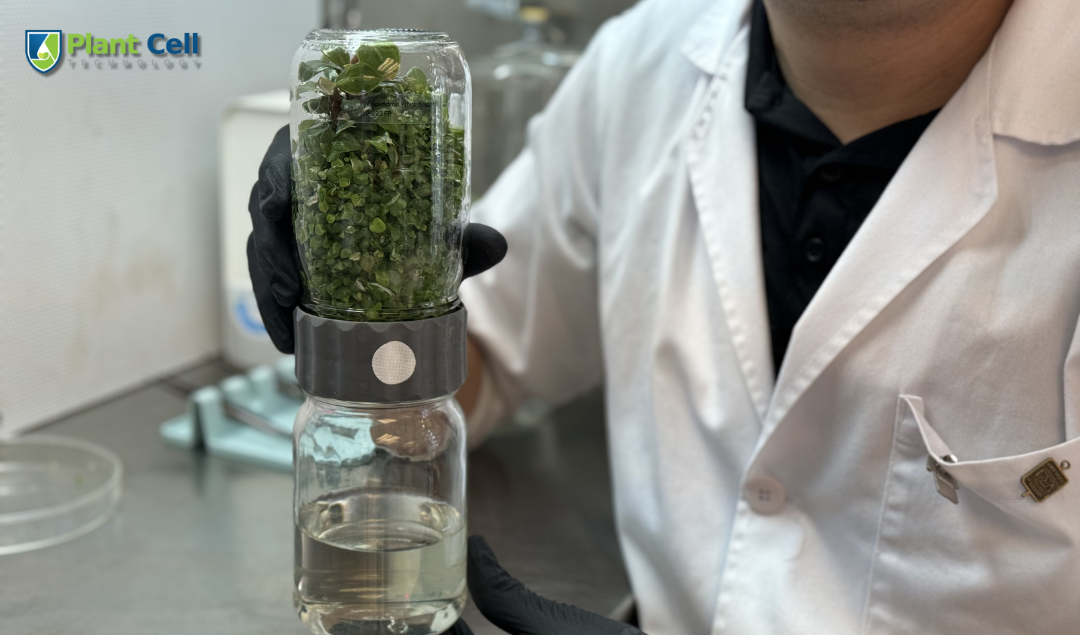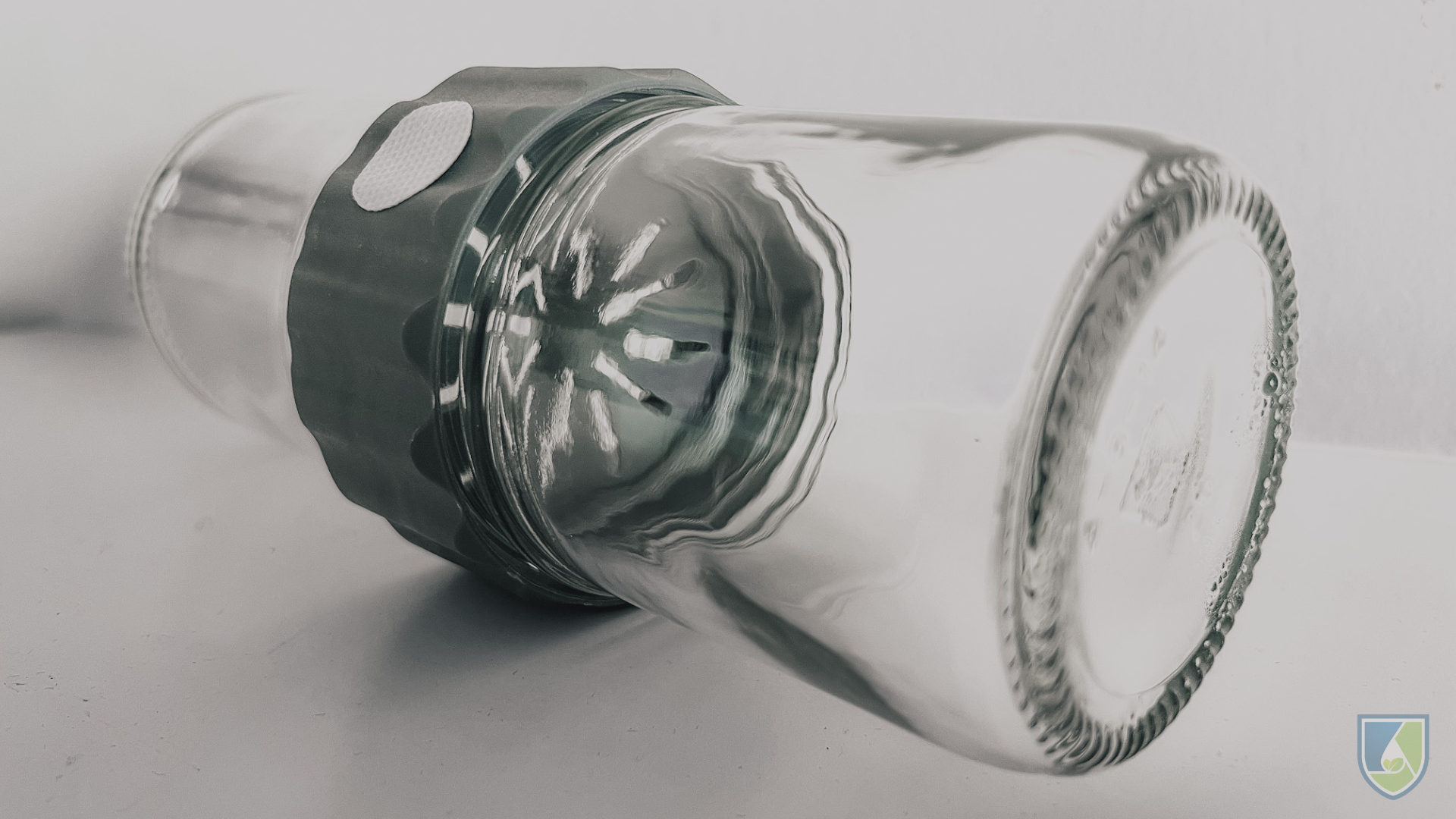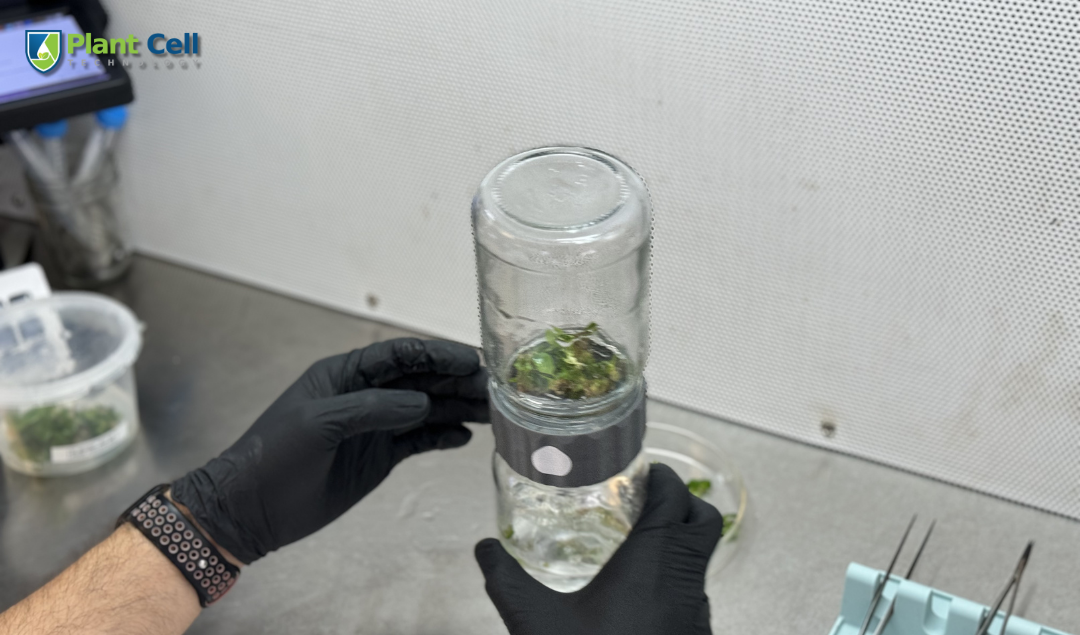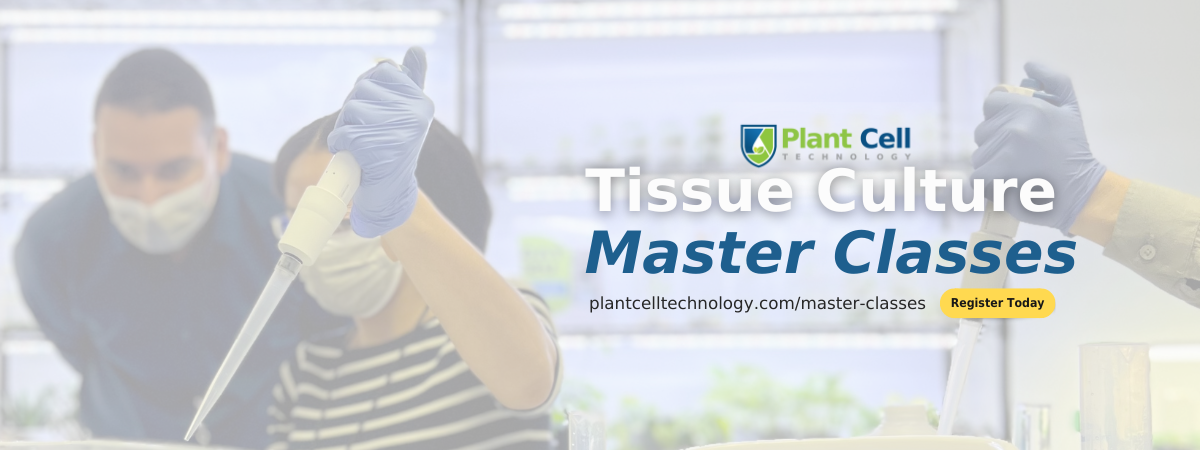
The Biocoupler™ – Here's How To Use It In Your Tissue Culture Applications
As a content and community manager, I leverage my expertise in plant biotechnology, passion for tissue culture, and writing skills to create compelling articles, simplifying intricate scientific concepts, and address your inquiries. As a dedicated science communicator, I strive to spark curiosity and foster a love for science in my audience.


Introduction
When you think about multiplying your plants at a dizzying pace, think of tissue culture. It is the most preferred technology among growers and culturists. The technology enables them to prepare an army of clones of their desired plants in not years but in a few weeks.
However, each step of the process must be carefully performed to achieve the desired results and obtain a maximum number of healthy plants at the end. From media optimization to subculturing techniques, every step holds the potential for success or failure.
Multiplication of plants involves, dividing the plant tissues obtained after the initiation phase (or even the multiplication phase) and introducing them to a fresh media. This can either be done on a solid media or liquid media. However, the limitations of using solid media are limited nutrient diffusion, the requirement of frequent subculturing, and the restriction of space for plants to grow freely.
Thus, liquid media for multiplying the plants in hundreds and thousands of numbers is the preferred approach. When you work at scale, temporary immersion bioreactors are preferred to multiply in vitro plants. During the process, plant tissues are submerged in nutrient-rich media for controlled periods, followed by drainage to facilitate gas exchange. This approach offers significant advantages for scaling plant production and fine-tuning the microenvironment.
In this article, we further delve into understanding what temporary immersion bioreactors are, how they help, and how Biocoupler™ (the simplest temporary immersion bioreactor) offers a cost-effective and efficient approach for growers.
What is a Temporary Immersion Bioreactor?
Temporary immersion bioreactors (TIBs) create a dynamic environment where plant cultures are intermittently bathed in nutrient-rich liquid and exposed to air, optimizing gas exchange for robust growth. This cycle of "soak and air" gets repeated throughout the growth process, providing optimal conditions for plant development.
TIBs are fascinating tools used in plant tissue culture to multiply plants at an accelerated rate. They offer several advantages including:
- Protects against vitrification and optimizes microenvironment control.
- Delivers nutrients efficiently and minimizes contamination risk.
- Reduces mechanical stress on cultured plants.
- Specialized air vents act as guardians, protecting cultures from harmful microbial invaders.
- Offer precise control over plant growth and development.
While temporary immersion bioreactors offer numerous advantages, their adoption across all grower levels is hindered by complicated setups, bulky size, and lack of guidance on the use of the systems. Thus, simplifying TIBs and offering compact versions could open doors to exciting plant multiplication possibilities, which is what Biocoupler™ does!
What is a Biocoupler™?
A Biocoupler™ is a proprietary device of Plant Cell Technology, designed to ease the multiplication and rooting stages of tissue culture. It utilizes liquid media that help supply just the optimum nutrients plants need to grow.
As of today, it’s one of the simplest temporary immersion bioreactors, offering several advantages over the traditional ones by simplifying setup, reducing costs, and improving efficiency.
Features of Biocoupler™
- Withstands repeated high-temperature autoclave cycles for exceptional sterilization.
- Autoclavable for sterile and reliable plant tissue culture.
- Highly durable and virtually indestructible in everyday use.
- Equipped with a microporous vent filter to minimize contamination risk.
- Maximizes space and time efficiency for streamlined plant propagation.
- Clear glass jars (you can either purchase them specifically designed for compatibility with Biocoupler™’s.
- Provides everything you need to start multiplying plants in tissue culture.
- Easy to use and clean with minimal simple parts.
A variety of plants have been successfully tested with the Biocoupler™, including:
- Orchids
- Succulents
- Cannabis
- Ferns
- Venus flytraps
Improved Biocoupler™for Enhanced Tissue Culture Experience!
Further, we can’t miss to tell you that the current version (Grey color) of the Biocoupler™is an updated version that has overcome all the limitations of the old (white colored) Biocoupler™. Now, the Biocoupler™is leak-proof, easy to change the filter, and durable, so you'll have a better tissue culture experience.
Here are some of the improvements that we have incorporated in the device:
- The new Biocoupler™ is developed from a more robust material, offering increased resistance to impact and wear. While occasional drops (even on concrete floors) should no longer cause damage, it's still recommended to handle the device with care.
- Stronger materials and thicker walls provide enhanced resistance to wear and tear, handling even high-temperature sterilization cycles with ease.
- Optimized slots facilitate smoother liquid flow while effectively restraining plant material, eliminating the need for manual adjustments. This also simplifies the cleaning process.
- The modern steel grey color not only looks sharp but also resists stains and UV damage better. Its ergonomic shape and satin finish ensure comfortable and secure handling.
- Replacing and positioning vent filters is now effortless, thanks to the redesigned system. Specialized tools or adhesives are no longer required.
How To Use Biocoupler™?
The Biocoupler™ simplifies plant multiplication! This cap-like system with a built-in filter connects mason jars for temporary immersion of plantlets in a liquid medium. Its adjustable vent controls flow prevents tiny plant bits from escaping, and minimizes airlocks. Plus, the filter equalizes pressure to prevent contamination.
Here’s how to integrate this product into your tissue culture experiments:
Follow the given steps to best utilize the Biocoupler™ in your tissue culture application:
- Prepare liquid tissue culture media using PCT’s MS media and add sugar based on the quantity of media you’re making (generally for 1-liter media, 30 grams of sugar is added). (DO NOT add Agar).
- Take the Biocoupler™ and connect two Mason jars at the two ends of the coupler.
- Measure 200 ml of prepared MS media.
- Open one side of the Biocoupler™ and add the measured 200 ml media to it.
- After filling the jars, close the Biocoupler™s™ loosely and autoclave them at 121 degrees Celsius for 20 minutes!
- After the Bioreactor™ is cooled down, you can start moving your pre-tissue-cultured plants.
- Open the upper chamber of the Biocoupler™ and place the explants on the Biocoupler™ surface.
- After placing the explant, close/connect the upper glass jar with the Biocoupler™.
- Wrap the joint, where Biocoupler™ is connected with both jars, using a parafilm or syringe wrap.
- Label the plants.
- Tilt the bioreactors as needed, once a day or once a week, based on the plant and its growth speed.
NOTE: Tilting the bioreactor involves slowly turning it upside down at 180°.



How To Acclimate Plants After Removing them From Biocoupler™?
Well, this is easy, similar to the steps you follow during your normal acclimation processes:
- Prepare your acclimation media (that would be a suitable mixture of peat and perlite or any other media that you prefer. If you want to learn the step-by-step process of properly acclimating your plants, this article is for you!)
- Take your Biocoupler™ occupied by plant and keep it on the desk in vertical position with the liquid media in the lower jar and the plants in the upper jar.
- Open the upper jar carefully so that the plants stay on top of the Biocoupler™. Keep the empty jar next to the other jar. (Watch the below images for a better understanding of the process)
- Fill the empty jar with distilled water and using sterile forceps, transfer plants from Biocupler™ into the water-containing jar.
- Close the lid of the jar and gently shake to remove any stuck media and clean your plants.
- Open the jar and transfer the plants to a petri dish.
- Using a sharp sterile blade and forceps, divide your plants into small plantlets.
- Transfer each plantlet to the acclimation media.
- Cover it with the hood properly and keep it at a suitable temperature.
- Follow the steps given in this article to properly acclimatize your plants.




Advantages of Using Biocoupler™ In Tissue Culture
“Why do we think a Biocoupler™ is a companion you need for the multiplication and rooting stage of your in vitro plant or scale your plant business?”
Biocoupler™'s user-friendly operation and ability to generate hundreds of plants without elaborate setups have made it the preferred choice for home-based and small-scale tissue culture facilities.
Here are some advantages of using Biocoupler™ in your lab setting:
- Eliminating the need for external power, this bioreactor operates with efficiency and convenience, optimizing the cost-effectiveness of your laboratory.
- Manual tilting, requiring minimal intervention only twice daily, provides gentle nutrient immersion for your plant specimens.
- Superseding the need for potentially damaging agitation, this system ensures the integrity of your delicate plant material.
- Optimized for space utilization, this compact bioreactor simplifies installation and maximizes benchtop availability.
- Requiring only readily available glassware, this bioreactor facilitates rapid experimentation and exploration within your research setting.
- Unlike other bioreactors, the Biocoupler™ needs minimal equipment and expertise, making it perfect for beginners.
- Ideal for home-based or resource-constrained laboratories, this system is compatible with confined spaces and readily sterilizes in even a microwave oven.
Conclusion

A Biocoupler™ is a connector that couples two glass jars together, typically regular mouth mason jars. It facilitates a smooth flow of liquid medium between the jars through an integrated filter. This filter allows air exchange while preventing the passage of small propagules that could contaminate the lower jar.
Biocoupler™ is the perfect device you need to efficiently perform the multiplication of your plants in a small space. And, no. it’s not a device for which you need weeks of training just to learn how to use it. You just need to tilt it once or twice a day to ensure that your pants are getting optimum nutrients.
Biocoupler™ revolutionizes plant tissue culture with its user-friendly, reusable design. This intuitive temporary immersion bioreactor simplifies research, education, and even commercial production. Enjoy optimal efficiency and cost-effectiveness while promoting optimal plant health.
If you are looking to procure this efficient, yet simplest temporary immersion bioreactor, visit the PCT store.
Plant Cell Technology Is Here To Help You At Every Tissue Culture Step!
If you are a beginner navigating your way through tissue culture, our comprehensive master classes serve as an excellent resource to educate yourself in the field and kickstart your journey. Our experts cover everything in the class, from basic principles to advanced procedures. Moreover, you get hands-on practice with our instructors to learn the exact execution of experiments and understand the dos and don'ts during the process.
Plant Cell Technology is your one-stop shop for all your tissue culture needs. So, don't wait any longer; explore our products and services here, and feel free to reach out to us at info@plantcelltechnology.com for any queries or concerns.
Happy Culturing!!
Blog Categories
View by Level
Popular Blogs

Why Labor is Modern Tissue Culture’s Greatest Challenge
Introduction If you look at the numbers, the plant tissue culture industry is on a meteoric rise. We are looking...
Read More
Best Practices for High-Quality Root Induction Before Acclimatization
Introduction Have you ever experienced the heartbreak of a "perfect" tissue culture run gone wrong? You spend months in the...
Read MoreSubscribe to Our Newsletter
1 comment
Hey there, I have a question about the new BioCoupler connector piece. Can I replace the filter that covers the the air exchange piece? Mine got wet, and I feel like it requires renewing.











Join the conversation
Your email address will not be published. Required fields are marked